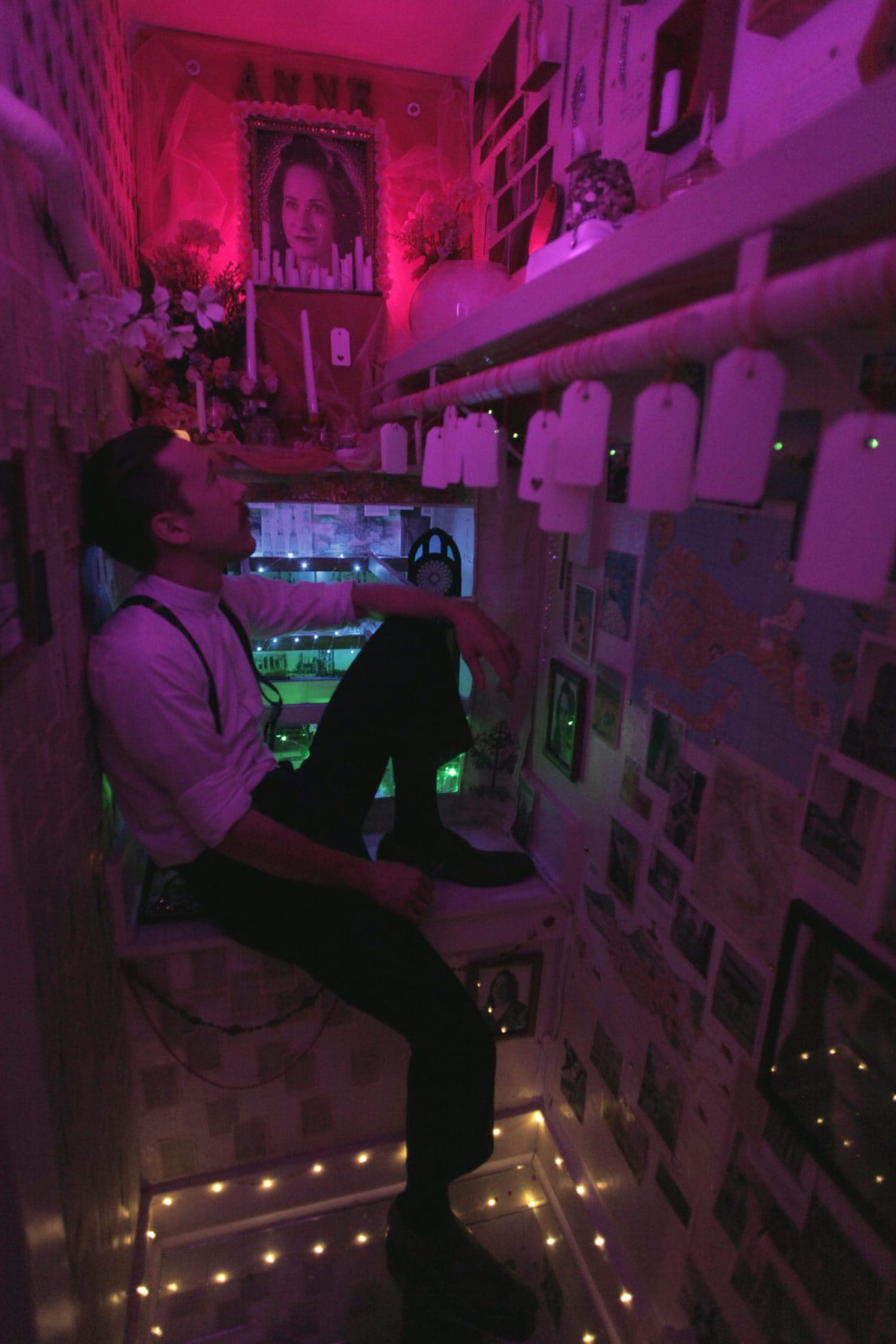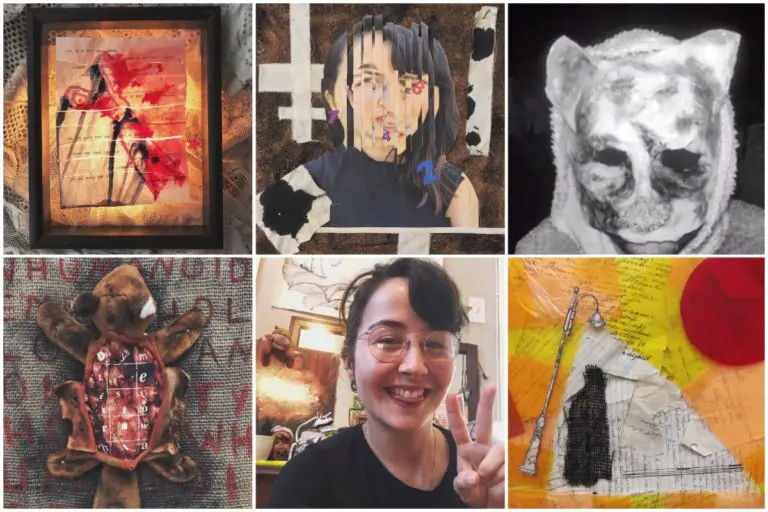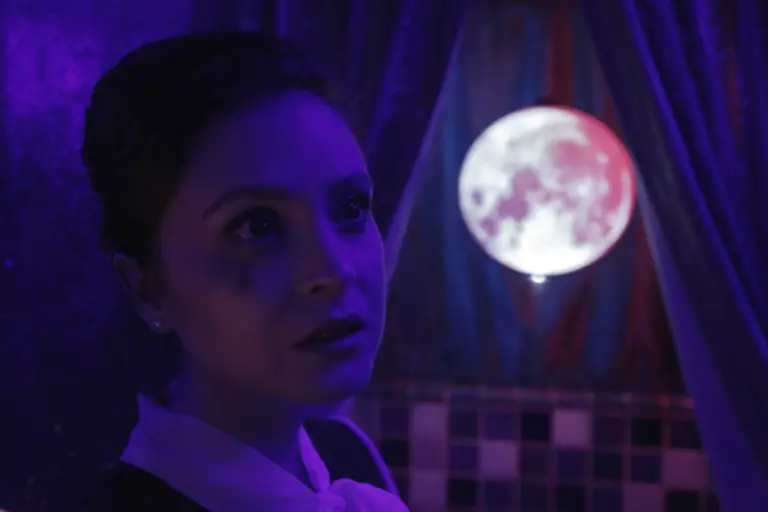The following is an extended review of In Another Room from E3W Productions. It contains minor spoilers for content. Please see our interview with E3W Productions about their unique ghost story for more.
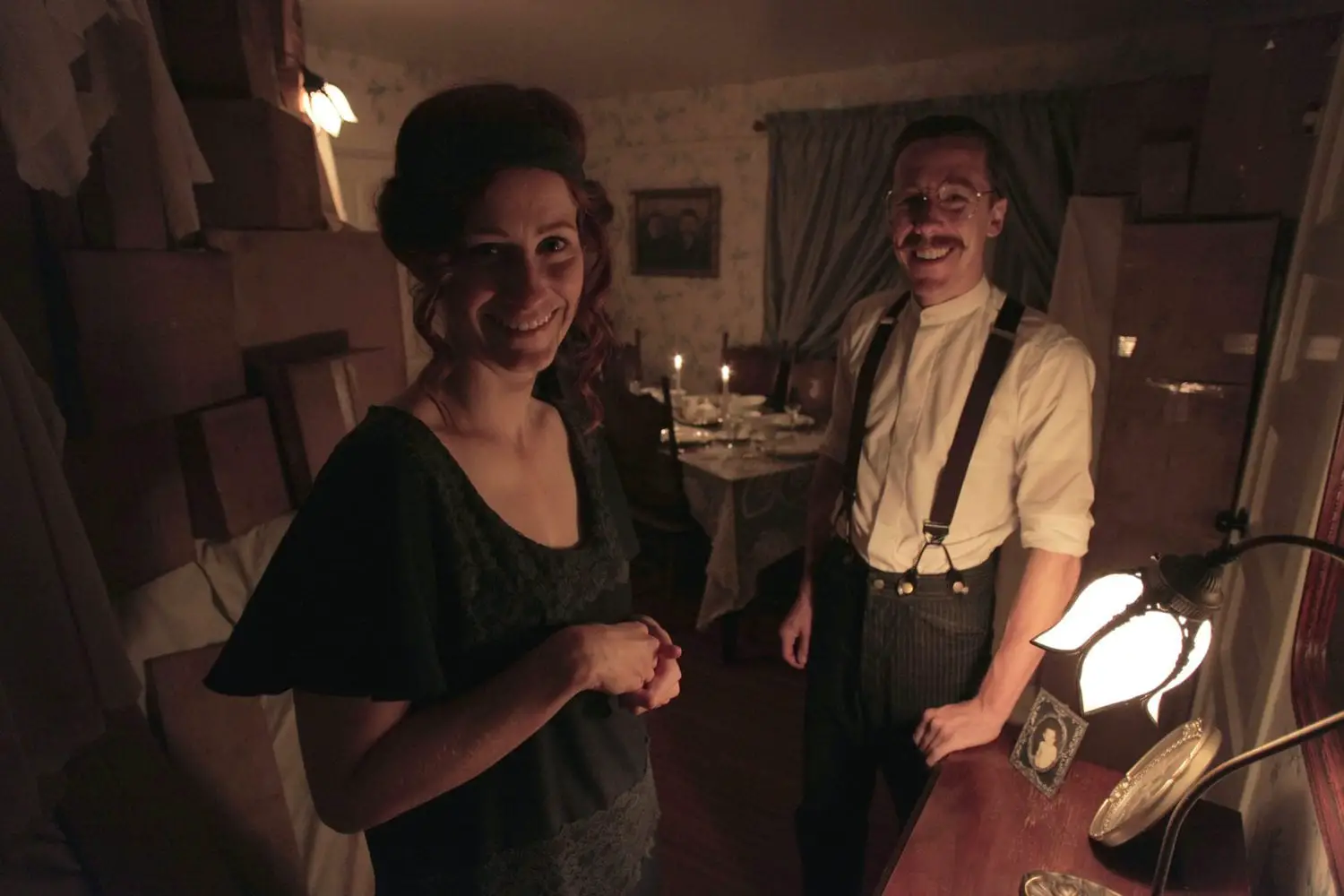
“There’s another kind of stain in places like this. It seeps into the walls, it’s like… like every person who steps into this house adds a layer of their own paint, layer after layer after layer. And the walls are thick here.”
In Another Room is a ghost story, but far from a traditional one. As E3W Productions’ first foray into immersive theater, they have done something truly remarkable: they have managed to capture a true and harrowing series of emotions without abandoning a dark undercurrent. Through a remarkable use of space, the ongoing and welcome use of musical cues for story beats, and strong acting, In Another Room provides an evocative and unique glimpse into tragedy. This is not a haunted house. This is a house that leaves you haunted.
E3W Productions is the writing and production of Aaron Keeling, Austin Keeling, and Natalie Jones, a team of immersive theater fans who have deftly turned their love of the genre into an emotionally stirring series of bespoke memories that participants pass thorough and live within.
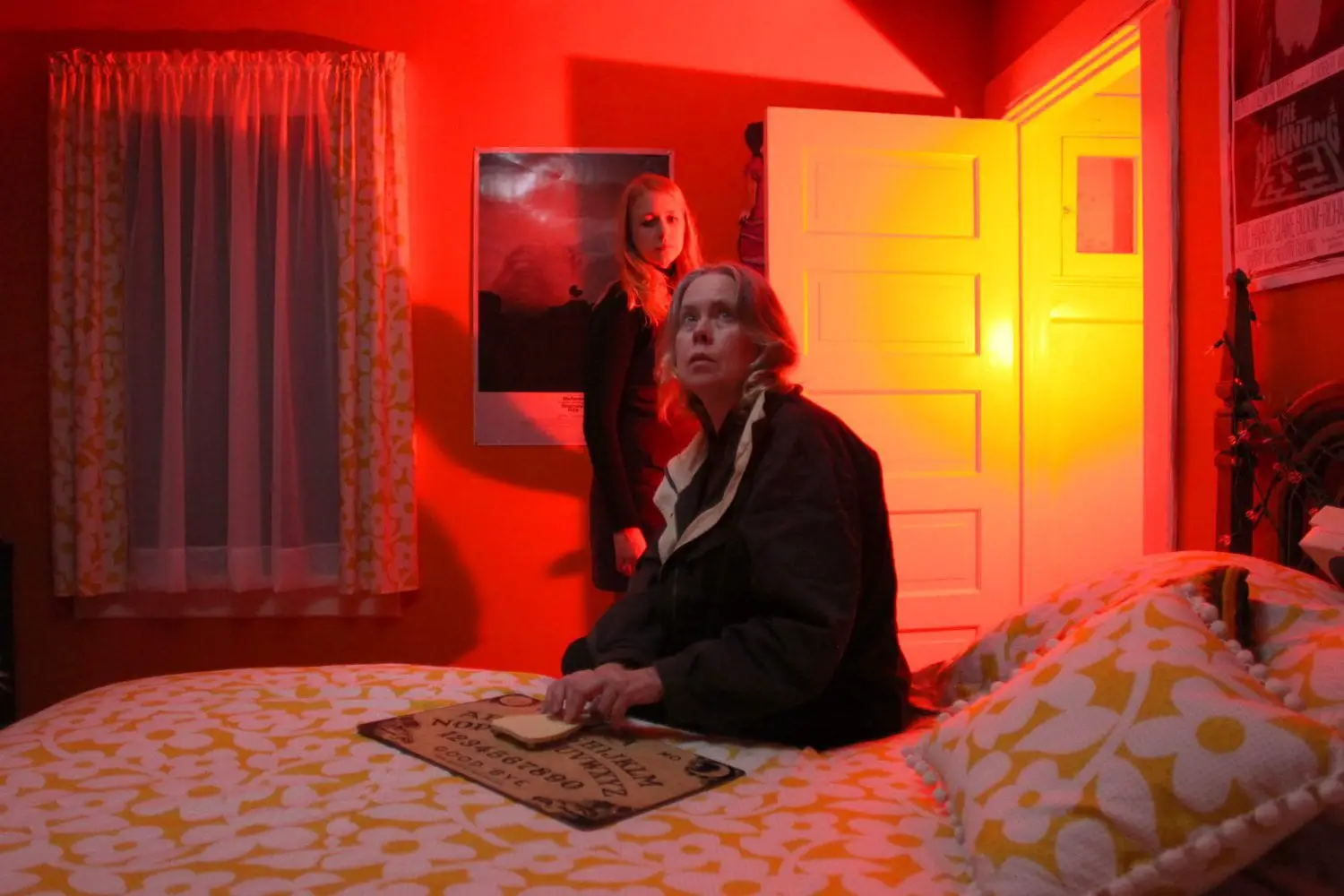
Coupled with sound work from Daniel Tator and an alternately eloquent and startling original score from Nathan Matthew David and Jeremy Lamb, each room speaks without words and touches you without contact; you feel each room is truly lived in by the long-dead. The home breathes; it exhales the cloying scent of roses in a too-hot space. The walls shudder in ragged respiration. This house has memory, tragedy; you enter but a piece of you never leaves.
The set design and use of space is one of the most impressive in recent memory; the home seems truly, impossibly, menacingly vast. It’s as if you can imagine yourself stepping through Mark Z. Danielewski’s House of Leaves as it shudders to life around you. Here is where the stunning artistic direction from Patrick Blanchard is most evident: crimson red strings dripping like blood from a ceiling; a cool muted beige for a love lost and forgotten; pale rose-colored hues paired with flickering flames, a kaleidoscope of flower-child exuberance plunged into darkness. But it is Blanchard’s use of color and light that truly reveals his artistic genius. A teenager’s bedroom bursts with vibrant life, only to have the light snuffed out as the sorrow of what truly haunts her is revealed; a low light returns as we shift time frames and impotently watch the unchangeable future unfold. A desperate wife frantically tries to forgive herself for what she’s done in a cold blue room, uselessly washing away a stain that will not wash out. A candle flame on a writer’s desk juxtaposes with a larger blaze, igniting love, igniting lovers; a tale of burning desire and longing. A husband, plagued by a failing memory, desperately clings to a past with his wife in a small shrine devoted to a future that will never be realized. All of this contained within a singular house. All of this and so much more brought to life by an exceptional understanding of the hidden dimensions of the set and imaginative direction.
The directorial team of Aaron and Austin Keeling fill this complex space with the exact kind of moving, nuanced, performances that a story of this emotional weight benefits from. Performances from Shirley Jordan and Kerry Wieder (alternating as Wendy Morrow) set an early tone; Morrow is frenetic, detailing past deaths in the house almost too quickly to follow like she is hurtling down a stairwell, until she hits bottom. She cowers and quakes, and her realization of her fate shakes the very foundations of the house. Morrow follows as a somber guide throughout the experience as a constant reminder that we never should have come here, and yet we did. Katie Peabody (Young Margaret) gives a stunning performance that begins with the giddy ebullience of a curious girl on the brink of life and abruptly shifts to quiet anguish. Maria Olsen (Adult Margaret) adds a counterbalance of sobriety and gloom that transforms fear into sadness. Ian Dick (The Writer) is an actor with a deep intensity, speaking Keeling and Jones’ words so eloquently that you grasp the time-period of his story by his cadence alone. Natalie Pellegrini (Natalie) and Sebastien Charmant / Nerea Duhart (Nik) expertly contrast Dick’s antique demeanor with a welcome and youthful exuberance. Christine Weatherup (Anne) and Dan Dorff (Gregory) are estranged against their will; they invite us to a dinner fraught with tension and forlorn resolve. In Another Room provides a cohesive cast that both carries and expands E3W’s vision.
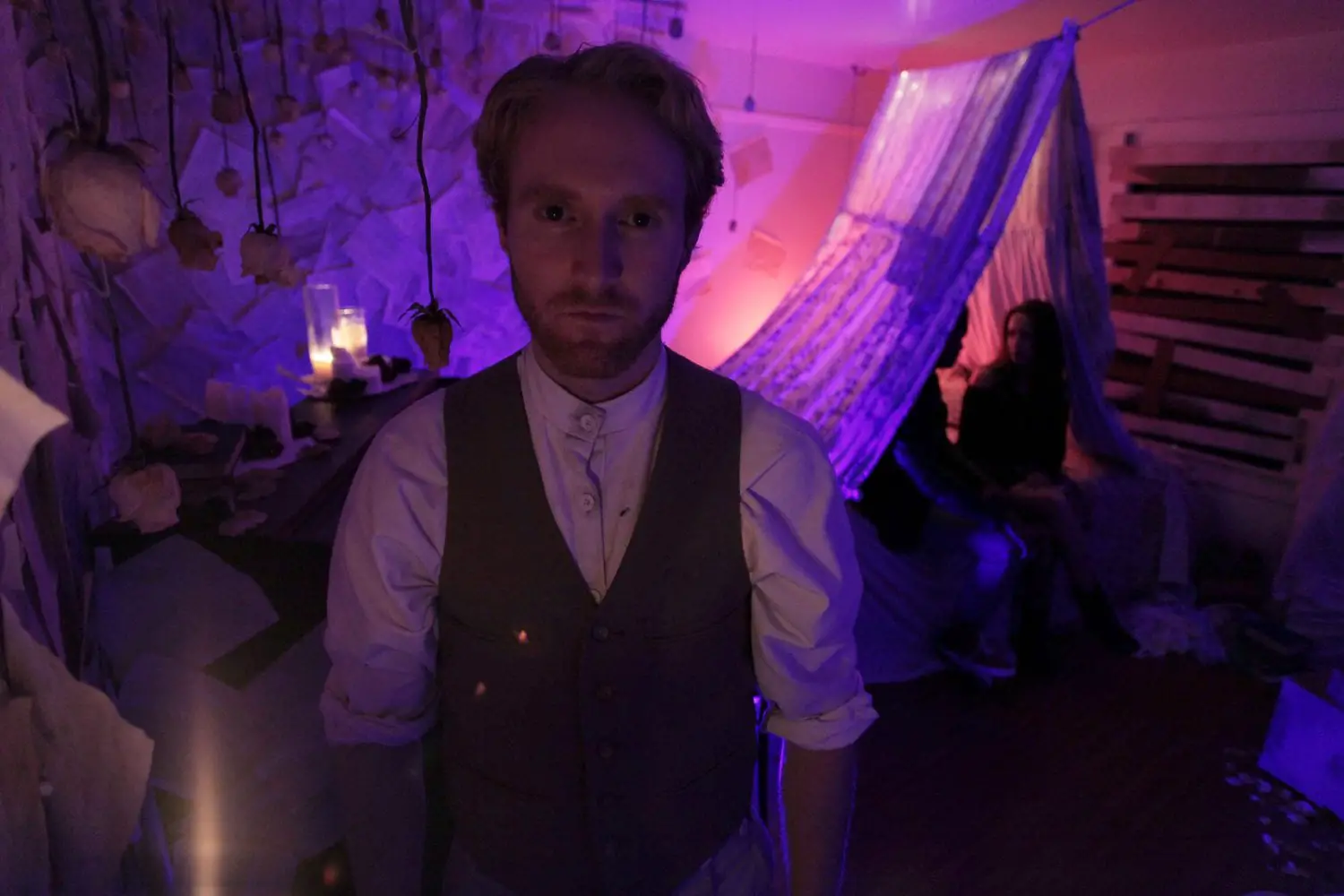
But the real strength of In Another Room lies in how our roles as “investigators” in this house shape our own part in the narrative; we merely observe and lightly interact with these wounded souls, heartbroken, wondering if our inability to affect the outcome means we too are ghosts. At one point the cacophony of sound and raised voices abruptly halts. Ian Dick (The Writer) stands, his eyes aching, and recites a poem.
“What once was cherished most of love,
A soft embrace, a knowing look,
Is withered now to something small,
A flower pressed within a book.
The spirits trapped within these walls,
No chains or white sheets on display,
See it’s not the wraith that frightens us,
But all the reasons why they stay.
Forgotten dreams, the things unsaid,
Decisions we regret the most,
The loves we let burn out too soon,
We’re haunted nightly by their ghosts.
They whisper darkly in our dreams,
And call our names in twilit gloom,
And always just beyond our reach,
And always in another room.”
His words hang in the air, these ringing and raging echoes of spirits long forgotten linger like heat on glass after a palm is pressed against it. But there is one more stop on our journey: the attic of the house to meet Olivia (Kali Cook,) a spirit who, more than any other, speaks with the voice of the house itself. She’s been expecting us, but not quite yet. “Your ghost stories are still being written,” she says. In a way that truly expands on immersive theatre’s belief in personal choice as a storytelling motivation, we are truly given agency; we are sent away to turn our next page, to life our life story.
In Another Room is a gorgeous exploration of what remains after a life has been lived. It gives a voice to the agony of madness, the desperation of grief, the inevitability of death. The piece itself is a phantom; it is the kind of story that lingers and haunts. It is a door that swings open in the night. Trust your own ghost story. Step through, and live.

For more information on this haunting ghost story, please visit In Another Room’s Instagram page.

